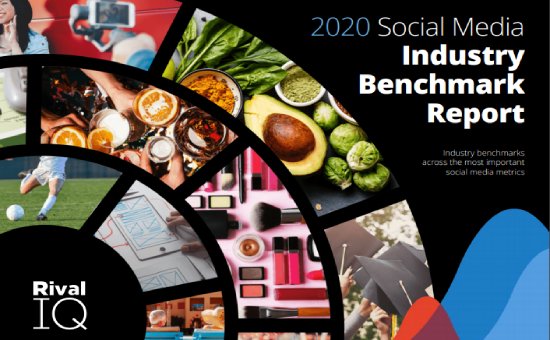Work, workforce, workers: Reinvented in the age of generative AI | Accenture
Artificial Intelligence |
Preface
Generative AI has rapidly emerged and is evolving at an unprecedented pace. Our teams have already engaged in over 700 client projects, revealing what success looks like in this domain. The key to realizing gen AI’s full potential lies not only in a robust data foundation but also in leadership that embraces new ways of learning and guiding.
This technology is set to revolutionize work, reshape the workforce, and prepare people for the future. However, much like the digital revolution, a focus on talent is crucial, yet often overlooked. As we explore this transformative era, it’s essential to prioritize talent strategies alongside technological innovation.
Executive summary
Work reinvented, workforce reshaped, workers prepared
Generative AI has the power to dramatically reshape work across various industries. While it offers significant benefits, it also presents ethical and societal challenges, such as job displacement, data privacy concerns, intellectual property protection, bias, and the need for responsible AI use. The impact of generative AI on work will largely depend on its implementation, regulation, and integration within different sectors.
The paragraph above, generated by ChatGPT, provides a technically accurate response to the question, “How will generative AI change work?” but it lacks depth. What it misses is the profound way gen AI will transform value chains, altering how businesses deliver value and enhance experiences for employees and customers—a perspective that requires human insight.
A better, more concise answer is: It depends on people and how they use it. Specifically, it hinges on leaders who have the courage, knowledge, and understanding to shape the future. They must prioritize human-centered change, learn new ways to responsibly scale this groundbreaking technology, and ensure that work improves for everyone. This involves setting a vision to reinvent work, reshape the workforce, prepare employees for a generative AI-driven world, and build a resilient culture capable of navigating ongoing change.
Invest in people to reinvent work
The significance of how people utilize generative AI today and in the future cannot be overstated. Gen AI is not just enhancing productivity; it’s transforming processes across the value chain and fundamentally altering the nature of work.
Given its widespread application across various job types and its potential to create substantial impact, generative AI is set to bring about the most significant economic shift since the agricultural and industrial revolutions. While the early industrial revolution was characterized by mass production and standardized outputs, the era of gen AI will be defined by productivity gains alongside heightened human creativity, leading to more innovative employee and customer experiences.
For the first time, we are embracing a generation of technology that is “human by design.” Gen AI’s success relies on human input to produce high-quality outputs, whether it’s drafting an email or generating a complex financial forecast. This evolution will drive a reinvention of work, introducing more human-centric processes across the entire value chain. By synthesizing data, understanding natural language, and converting unstructured information into actionable insights, generative AI is democratizing business process redesign, enabling everyone—from frontline workers to scientists and designers—to reshape their workflows.
Generative AI also has the potential to bring workers closer to their customers. Consider a banking scenario where AI-powered analytics provide a comprehensive view of customer needs, allowing for the customization of financial products and services. This end-to-end transformation not only streamlines operations but also deepens bankers’ understanding of their customers, leading to better products and improved experiences for both customers and employees, ultimately benefiting the bottom line.
Research indicates that generative AI offers a triple opportunity: accelerating economic value, boosting productivity for business growth, and fostering more creative and meaningful work. Comparative analysis of global gen AI adoption scenarios suggests that over $10.3 trillion in additional economic value could be unlocked by 2038 if organizations responsibly and extensively adopt generative AI across industries and value chains. This potential is echoed by CxO optimism, with many believing that gen AI will ultimately increase their company’s market share, and 17% anticipating a market share growth of 10% or more.
Most organizations view generative AI as a catalyst for innovation, focusing more on revenue growth than cost reduction. Notably, organizations identified as “Reinventors” (about 9% of all organizations) are twice as likely as others to expect productivity gains of 20% or more within the next three years. Furthermore, two-thirds of these organizations strongly believe that gen AI will make work more fulfilling and meaningful.

Our research delved into the factors contributing to the trust gap surrounding generative AI. Currently, three-quarters of organizations worldwide lack comprehensive strategies to ensure positive employee experiences and outcomes with gen AI, and two-thirds of the CxOs we surveyed admit they are not adequately prepared to lead this transformation. There is also a disconnect in perceptions between leaders and employees. While 58% of workers express concern about job security, less than one-third of CxOs see job displacement as a significant issue. Additionally, 60% of employees worry that gen AI may lead to increased stress and burnout, yet only 37% of leaders recognize this as a concern. This trust gap jeopardizes the potential benefits of gen AI.
However, leaders can bridge this trust gap and accelerate the integration of gen AI by observing and emulating the strategies of leading organizations. These “Reinventors,” comprising 9% of organizations, are already thinking ahead—recognizing that their processes will need significant changes to fully harness the power of gen AI. Over half are actively reshaping the workforce by redesigning jobs around AI, and three-quarters are involving employees in their change initiatives while reskilling them. These organizations are fostering transparency, breaking down silos, and making data accessible to all employees, thereby building trust.
Our research also emphasizes the importance of meeting employees’ fundamental human needs, helping them feel “Net Better Off” at work. This approach not only strengthens trust but also prepares employees for the gen AI era. By helping employees build trust, develop market-relevant skills, work with purpose, and improve their emotional, physical, and financial well-being, organizations can unlock two-thirds of an individual’s potential, potentially leading to a 5% revenue increase.
In the age of gen AI, leaders should view their employees as active participants in the journey, not just passengers. Reinventors understand this, and with only a small percentage of organizations currently leading the way, there is a significant opportunity to join the front-runners. Success will depend on leaders who act with compassion and humility, creating conditions that make employees feel Net Better Off at work.
Our gen AI “GPS” outlined later in this paper provides guidance on navigating the journey ahead, focusing on four key accelerators. It emphasizes the need for leaders to commit to continuous learning, lead in new ways, and embrace human-centered change management to reinvent work, reshape the workforce, and prepare employees to be resilient in the face of future challenges.
Before exploring the gen AI GPS, we will first examine the current state of generative AI and the conflicting perspectives surrounding it. Understanding both is crucial to fully realizing the potential of gen AI for organizations, individuals, and society.
Discover how to harness generative AI to transform your workforce. Continue reading and download the full report now.
The Table of Contents of “Work, workforce, workers: Reinvented in the age of generative AI” Report:
- Preface
- Executive summary
- The gen AI state of play
- Conflicting views erode trust
- The trifecta of opportunities: economy, business, people
- Gen AI GPS
- Prospects ahead
Number of Pages:
- 48 pages
Pricing:
- Free
Methodology
The study modeled three scenarios for AI adoption across 22 countries, analyzing its impact on jobs and GDP growth. Using machine learning and economic data, it assessed how generative AI could transform tasks, explore job transitions, and affect workforce quality. Three scenarios were considered: aggressive cost-cutting with rapid AI adoption, cautious adoption focusing on automation, and a people-centric approach balancing automation with minimal talent displacement. The research highlighted the significant impact of AI on industries with high language-based tasks, emphasizing the need for strategic adoption.






